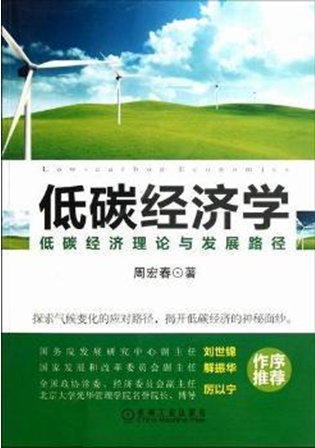Low Carbon Economics
2015-11-09
 |
| Low Carbon Economics |
By Zhou Hongchun, Research Department of Social Development, DRC
Climate change is a common challenge facing human beings. Climate change is both an environmental issue and a hot issue in international politics, but it fundamentally boils down to development issue. China has a large population, complex climate conditions, and weak ecological environment, thus prone to negative influences of climate change. Meanwhile, since China's economic development is not at a high level yet, poverty elimination remains to be accomplished, and we are still in a stage for rapid advance of industrialization and urbanization, development therefore remains the top priority. We are required to grasp both domestic and international situations and address well the relationship between economic development and environmental and ecological protection.
Green and low-carbon transformation offers a major opportunity for innovation in human society. We should and can do something to our credit. We should take improving carbon productivity as the core issue, build an incentive and restrictive mechanism, channel technology, capital and other resources into the emission reduction field, so as to promote technological progress and industrial upgrading, form new growth drivers and create more employment opportunities. As long as our strategies, policies and mechanisms are suitable, emission reduction will be no burden and instead help extend space for technological and economic development.
China's government has put high focus on addressing climate change and taken energy conservation, emission reduction and low-carbon development as the key leverage to cope with climate change and change development mode. The government will adopt comprehensively price, fiscal, taxation and financial policy tools as well as necessary administrative measures, motivate the society in general to jointly participate in the active efforts, and work towards the set emission reduction targets. We will adopt an approach of pursuing better development instead of slowing or stopping development to solve resource and environmental problems in the course of industrialization and urbanization. We should accelerate transformation of the traditional economy toward a green and low-carbon one, attach importance to efficient and clean use of traditional energy, strive to develop new and renewable energy, proactively promote the pilot work of low-carbon city construction, intensify efforts of energy-conservation and emission reduction in architecture, transport and other industries, raise public awareness for green and low-carbon development, so as to fully advance the green economy process.
As a research fellow, Zhou Hongchun has long been engaged in research of environmental protection and sustainable development and has followed the progress of climate change research both at home and abroad. In recent years, he has participated in work of DRC's research team on climate change. This book contains his views on climate change, which are valuable for China's efforts to address climate change and develop low-carbon economy and are also believed to provide relevant references for some readers.
The book includes three chapters. Chapter 1 gives a detailed illustration of low-carbon economy transformation and related implications. Chapter 2 expounds from a theoretical perspective the emission pattern of carbon dioxide and potential for emission reduction. Chapter 3 summarizes focuses and the roadmap for low-carbon economic development based on basic concepts and theoretical knowledge in the previous two chapters.
The book is written by Zhou Hongchun, Research Fellow and Director of No. 2 Research Office of the Research Department of Social Development of DRC. If there are any views inappropriate in this book, it is hoped that they could be kindly pointed out and corrected by dear readers.














